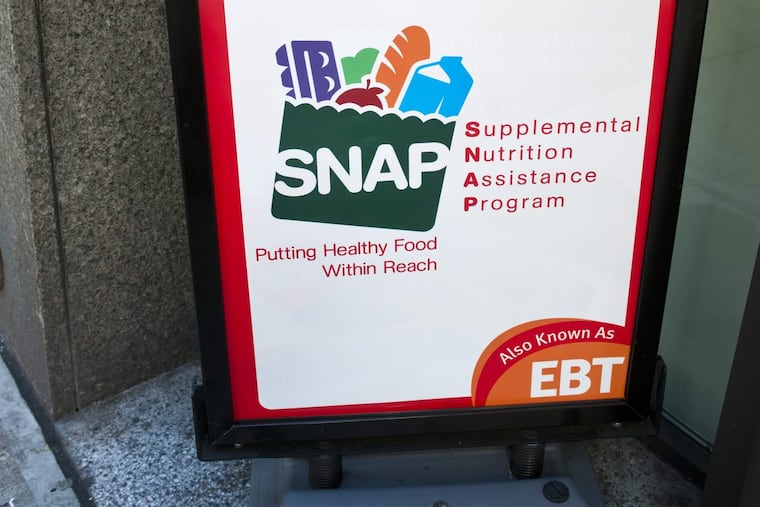For 2020 candidates, child poverty should count | Opinion
As a pediatrician, I want to hear more from candidates on combating child poverty.

As we enter the 2020 presidential election cycle, intensified last week by the first round of Democratic debates, candidates are promising big changes. Front-runner Joe Biden wants to build a better middle class. Bernie Sanders, second in recent polls, is back promoting universal healthcare. Donald Trump, representing the Republicans, continues to demand a wall.
Amid all this pomp and circumstance, we cannot forget the smallest voices in the room — kids. Kids make up 25% of the population and 100% of the future, and they cannot vote. Are our public officials speaking to issues that matter to our kids?
This concerns me especially as a pediatrician. Some voters may believe that doctors don’t belong in politics, but politics impact health. Not only are pediatricians experts in child health and development, but we are taught to be advocates for our patients. Since our patients can’t vote for themselves, pediatricians must speak out and encourage all adults to vote in the best interests of children.
We Philadelphians should be especially interested in candidates’ positions that impact child poverty. Here in Philly, the childhood poverty rate is the highest among the nation’s 10 largest cities at nearly 1 in 4 kids. Childhood poverty is a known risk factor for chronic health conditions, mental illness, and lifelong poverty. Childhood food insecurity, in which one or more children in a household lacks adequate, nutritious food, sits at 11.8% of children in Philadelphia (compared to 7.7% nationally).
Childhood food insecurity has a similar direct effect on child health leading to increased risk for obesity, diabetes, behavioral problems, poor educational achievement, and future productivity. Due to the level of poverty in the city, and the importance of nutrition on education, the Philadelphia School District offers free breakfast and lunch to all students in the district. Quality education is known to foster child and adult health, but according to the Philadelphia School Progress Report, in the 2017-2018 school year, only 45% of our 8-year-olds were reading at grade-level, and nearly 70% of district schools fell into the lowest performance tiers. Investments we make in all children’s well-being today will pay dividends for the Philadelphia of tomorrow-something everyone benefits from.
Certain anti-poverty programs like Temporary Assistance for Needy Families (TANF) and the Supplemental Nutrition Assistance Program (SNAP; formerly known as food stamps) have been proven to improve some of these issues, but they require funding and political will. Unfortunately, President Trump proposed $220 billion dollars in cuts to SNAP in his 2020 budget, as well making it more difficult and costly for urban school districts to provide free breakfasts and lunches to children from low-income families by reducing community eligibility and increasing administrative regulations regarding how schools determine and verify if students are eligible for free or reduced school lunches. Moreover, Trump’s 2020 platform includes a radical adjustment in the way the government measures poverty — by changing how inflation is used to calculate the official definition of poverty) such that fewer individuals would be considered poor.
On the Democrat side, two of the most interesting anti-poverty measures have been collaborations with Ohio Senator Sherrod Brown, who is not in the 2020 race. In 2017, Brown and Michael Bennet (a Colorado Senator who is running for president) introduced the American Family Act to expand and revise the Child Tax Credit to provide most parents with cash — at least $3,000 every year split into monthly installments. According to Columbia University’s Center on Poverty and Social Policy, the American Family Act is expected to lift approximately 4 million children out of poverty. Kamala Harris, a California senator also in the presidential race, joined with Brown to introduce bills that expand Earned Income Tax Credits (EITC), providing supplemental cash to low-income working individuals.
While these proposals are positive, there is still an alarming lack of focus on child health in 2020 platforms. As you watch the next round of presidential debates next month, think about candidates’ policies in relation to children’s health. As constituents and voters, we have powerful voices, and together we can #votekids in 2020 to ensure a healthy future.
Jeannette Tepper, MD is Pincus Pediatric Bioethics Fellow at Temple’s Lewis Katz School of Medicine and a Pediatric Hospitalist in he CHOP Care Network at Chester County Hospital